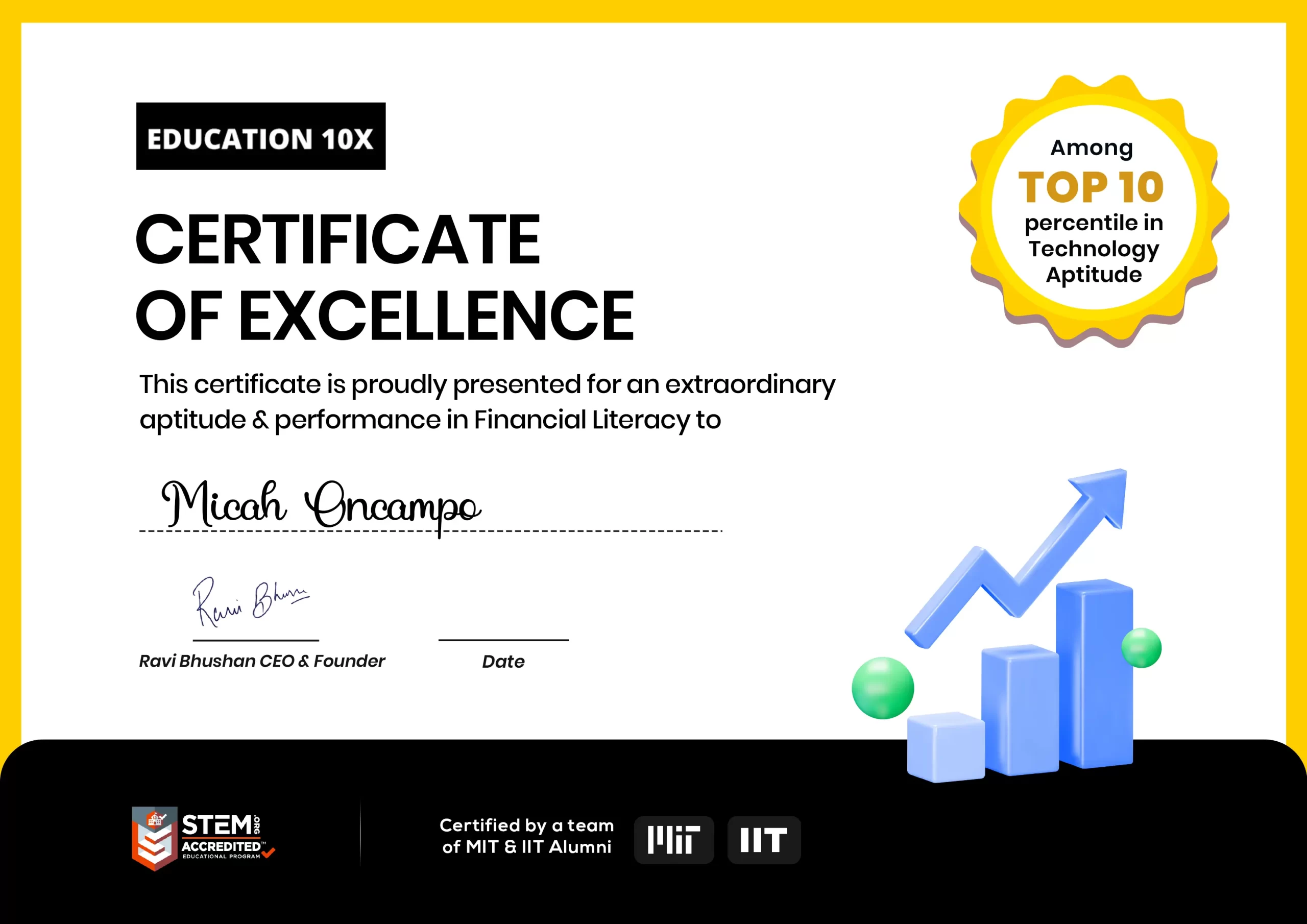Parents need to realize that for every good habit, there is momentum that will result in maximum advantage. Starting early is the key to seizing momentum. All kids have their own golden age to learn. As a rule of thumb, the optimal period for a child to absorb information most effectively is around 2–6 years old. Learning money for kids is a crucial life lesson that they should acquire at the right age.
One of our goals is to gradually but firmly establish good money management habits. Along the way, it will encourage responsibility and develop financial literacy for students Read on to find more tips and fun ways to teach kids about money.

Table of contents
Tips for Teaching Kids About Money
Starting early is crucial to imprinting good financial habits in your kids’ minds. Here are some tips for teaching kids money that parents can use at an early age:
- Take the most benefits by starting early. Grasp the momentum of the golden age of learning in kids where they are hungry to learn and absorb information so effectively.
- Keep the activities short, simple, and relevant to your kid’s age and interests. Kids, by nature, are easily distracted and lose interest. So, making a money learning activity short (not more than 7 minutes) is critical to engage them. You can also engage them in banking games for kids.
- Good money habits are an ongoing process. Parents need to be consistent by giving continuous effort and attention to their kids’ learning progress. All of your efforts and time will bring rewarding results, as good financial habits will serve as a firm foundation throughout your kids’ lives.
- Be a good role model by walking your talk. Kids learn by watching you, so it’s important to model good money habits. Show your kids that you spend money wisely by not buying things impulsively.
- Teach your kids how to tell needs from wants. Parents can show their kids by reasoning loud enough for their kids to listen and learn. If they ask about your decision in choosing something over other things, it’s the right time to start a money conversation with your kids. Such activities will help them form the desired spending habits and make high-financial-IQ decisions when they are adults.
Money management for kids

Learning money for kids is not easy, yet it is doable and can create must-have skills for every kid. But it’s not taught at school, so you are in charge of teaching your kids how to manage their money. During these formative years, teach them good money-management principles that will be a firm ground for them to step on when it comes to earning, saving, and spending their money.
Teach them right and in a balanced way, or else they will learn it inappropriately and end up being penny-pinching and seelf-focused people that will hurt them and others.
Once every month, show them how to grow the money they save by keeping it in their savings account in the bank and point them to the ever-growing account balance. This simple activity will keep them motivated to earn and save. Once in a while, ask them to buy things they want.
But don’t forget to take them to visit the needy in your neighborhood and bring something, such as food or clothes, for the poor. So, by practicing this, you are preparing your kids to be financially literate—an indispensable literacy in today’s world.
Financial literacy for kids

Everywhere we set our eyes, what we see is consumptive activity, be it in social media like Instagram, WhatsApp, or video-sharing platforms. We are so accustomed to such perspectives. If parents don’t provide access for their kids to be financially literate, what they hear and watch is their main source of information, leading to consumptive behaviors.
That’s one of the reasons why learning money for kids is important because it will be a source of financial literacy for them. Financial literacy is not only about knowledge and skills in handling money; it is also about critical thinking in making informed decisions and a sense of responsibility in managing money.
Some crucial financial literacy topics for kids are the time value of money, the importance of setting financial goals and delayed gratification, and how to be a smart consumer, especially in the internet era where inappropriate money lessons are just a finger away from your kids.
Fun Ways to Teach Kids About Money

Learning about money for kids doesn’t have to be boring. Here are some fun ways to teach kids about money.
- A pretend play. You can set up a pretend store with any items at hand for sale. Use real coins and small denomination banknotes for this purpose. Allow your kids to choose the items they want to buy, and help them count the money they need to use to buy the items.
If your kids seem to hesitate to choose between several items, help them decide which to buy based on their needs and the money they have for spending.
- Take them to their favorite toy store. Let them choose the toy they would like to buy. Ask them the sum of money they have at hand and the price of the toy. If their money is not enough, this is the moment to teach them to earn money by doing simple chores at home to get some money as a reward.
- Play a Monopoly board game. The game is fun and also teaches them about financial literacy, such as how to communicate with other players, create ways to win the game, think about the risks of their decisions, and have patience.
- Use fun money lesson apps: BrightChamps‘ Money Management Lesson App is an excellent platfrom to teach kids the value of money in a fun and exciting manner.
The app offers various interactive games and challenges to help learn financial literacy activities for kids skills such as budgeting, saving, and investing. Its user-friendly interface and age-appropriate content make it easy for children to learn about money management while having fun. Through this app, children can learn valuable skills such as financial responsibility, planning, and decision-making, which can help them in their future lives.
Overall, the BrightChamps’ Money Management Lesson App is an innovative and effective way to help kids learn about money and develop sound financial habits.
Conclusion
Now we know that learning money is essential for our kids’ future. We also know that we need to seize the momentum by starting early because starting late results in missing out on the critical opportunity—to develop good money habits to catch up later in life. Money management for kids is an indispensable skill nowadays.
Good money-management principles will enable them to have a firm foundation to avoid unnecessary financial stress in their adult lives, for example, bad spending habits that incur debt. Financial literacy for kids is crucial because kids who do not have access to financial education are more likely to struggle with money as adults.
Last but not least, use fun ways to teach your kids about money because learning money lessons is an ongoing process. So, keep exploring financial literacy on this blog. It provides up-to-date information: tips, fun apps, and courses in learning money management.
To get your hands on more such educational, parenting and free resources on coding, robotics, game development, etc., do check out the Brightchamps Blog Page now!
Frequently Asked Questions (FAQs)
It depends on how much money they earn, but as a rule of thumb, kids can start with 10% and gradually increase the percentage as their money-management skills grow.
The cost of raising kids varies from family to family. It depends on many factors, such as family expectations and lifestyle. However, a report from the United States Department of Agriculture stated that the average cost of raising a kid born in 2015 to the age of 18 is more or less $233,610 (college fund excluded) for a family with a middle income.
The best is to start as early as possible to incorporate and make the best use of the magic of compounding to double your savings in a long-term setting.
In general, pocket money is suitable to be given to kids around 5 to 6 years old and upwards. The reason is that kids start to reason about abstract concepts and are ready enough to understand the value of money. However, parents need to establish clear rules and expectations around pocket money
A 10-year-old kid can start earning money by doing what they can do best and are willing or passionate to do. Be it pet sitting, teaching young siblings their school subjects, or yard work (like pulling weeds and watering plants),
Paying kids for chores is a family decision. If your family decides to take this route, make sure you, as a parent, set clear expectations and responsibilities.
Again, it’s a family decision. If you decide to give your kids an allowance, consider giving them guidance and responsibilities for handling the money.
Kids can get pocket money if they have to buy things they need. If they need extra money for something they want, show them how to earn it.
Paying kids for good grades has advantages and disadvantages. Again, it’s a family decision. So, exercise it in line with your family values and the kid’s motivation.
You should consider giving your kids pocket money since it is one of the best ways to teach kids about money management.


 We are an army of educators and passionate learners from BrightChamps family, committed to providing free learning resources to kids, parents & students.
We are an army of educators and passionate learners from BrightChamps family, committed to providing free learning resources to kids, parents & students.







